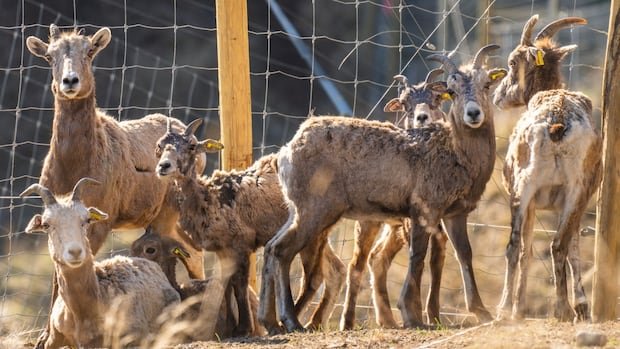Residents in the South Okanagan region of British Columbia have observed a rise in psoroptic mange, a parasitic skin condition, among the local bighorn sheep. This increase in the disease has led to a decrease in the sheep population, prompting a new research study.
The Okanagan Nation Alliance (ONA), a First Nations tribal council, is spearheading the research study, which commenced in February and is scheduled to run until July 2026. The alliance emphasizes the cultural significance of bighorn sheep to the Syilx people, highlighting their role in reflecting the health of the land and the harmony between humans and nature. The Wild Sheep Society of British Columbia is supporting the research efforts, which involve various provincial and regional biologists, given that British Columbia is home to diverse populations of wild sheep in North America.
Mackenzie Clarke, the lead of the ONA Wildlife Program, disclosed that all bighorn sheep from Penticton down to the United States are affected by psoroptic mange, causing skin issues, hair loss, and potential hearing loss. The disease poses serious risks to the sheep, particularly during winter when they are exposed due to hair loss, making them vulnerable to predators and road accidents.
Research indicates that the psoroptic mange likely originated from a former domestic rabbit farm in British Columbia. Genetic testing conducted during a previous trial confirmed the link between the disease and the proximity of the sheep to the rabbit farm. Efforts are underway to conduct a medication trial using two drugs, fluralaner and moxidectin, sourced from Australia, to combat the mange.
Since the initial detection of psoroptic mange in the South Okanagan area in 2011, there has been a significant decline of 60% in bighorn sheep populations. The study aims to reverse this trend and revitalize the numbers of bighorn sheep in the region. Lia McKinnon, a stewardship biologist with the Okanagan Similkameen Stewardship Society, expressed optimism about the study’s potential to address the various threats faced by the bighorn sheep, including pneumonia.
Collaborative efforts involving the Penticton Indian Band, the Okanagan Nation Alliance, and the provincial authorities are crucial in tackling the challenges affecting the bighorn sheep population. The study’s inclusive approach, involving Indigenous communities, underscores the importance of preserving local wildlife and ecosystems.

